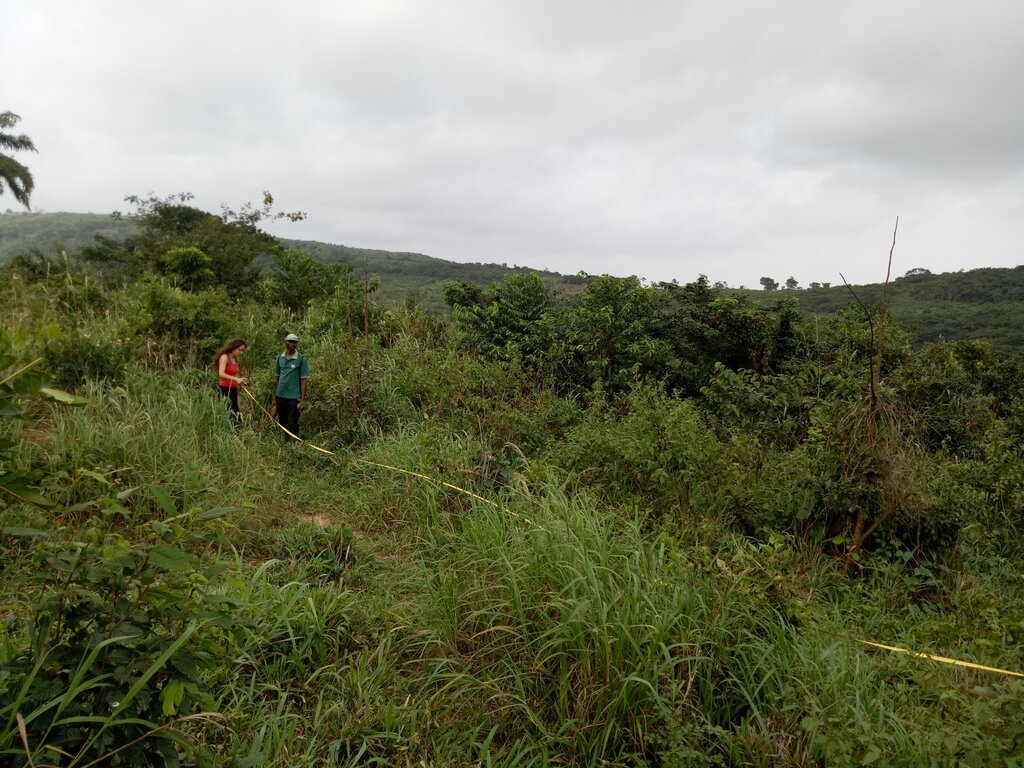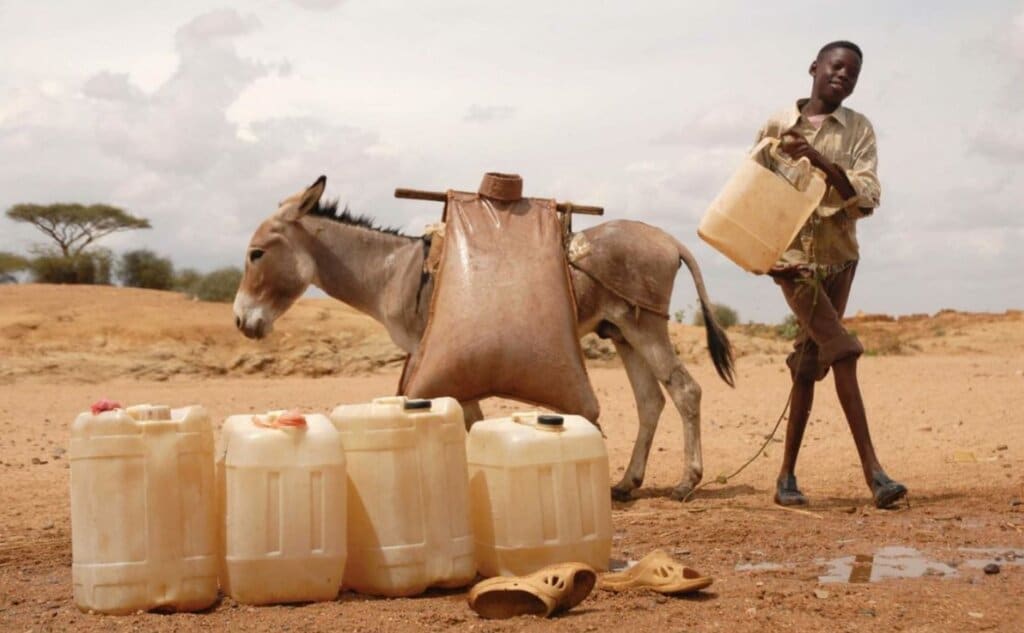For decades, water scarcity has been one of the most pressing issues for the African continent, affecting the lives of hundreds of millions of people. With the crisis worsening year by year due to population growth, mismanagement of resources, lack of adequate infrastructure and climate change, finding ways to end it is now more urgent than ever. New, innovative technologies are constantly being developed, where some have proven to be successful in detecting underground water reserves. Now, the ambitious project Remote Water aims to make use of these successful technologies to help the neediest communities and combat water scarcity in Africa.
—
Water Scarcity in Africa
Water scarcity refers to the lack of water access and supply in all means of life, from drinking water and personal hygiene to home duties and agricultural practices, and it can occur as a result of both physical shortage and the failure of institutions to ensure a regular supply and to build adequate infrastructure.
One of the continents mostly affected by this issue is Africa, and especially its most arid regions. Water scarcity in Africa, both of natural and human origin, is seen as the greatest challenge for sustainable development. Water in Africa is unequally distributed and much of it is wasted, polluted, or unsustainably managed. Increasing droughts resulting from low annual rainfall and low levels of internal renewable water resources affect areas in the Sahel such as Sudan and Mali as well as some Southern African countries, with scientists estimating that by 2025, the number of countries facing scarcity will reach up to 14, while another 11 countries will be in a situation of water stress.
Lack of clean water affects one in every three Africans and has a devastating impact on all aspects of their life, compromising their health and education in addition to preventing agricultural productivity and industrial development. The main aspect of water scarcity in Africa is the lack of sources of clean drinking water. The World Health Organization estimates that contaminated drinking water alone causes approximately 500,000 diaorrhoeal deaths each year. In sub-Saharan Africa (SSA) alone, one of the regions mostly affected by droughts, approximately 42% of people lack access to basic drinking water and 72% are without basic sanitation. In many cases, the water available is highly polluted and contaminated, and a staggering 12% of the health budget is used to treat conditions deriving from it – the most common and deadliest in Africa being diarrhoea and cholera, which collectively kill about 180,000 children under five years of age every day in SSA.

Water risk in African countries. Image: World Resources Institute.
The unprecedented water crisis that the African continent is currently facing has to do with a series of factors of environmental as well as economic and political nature and there is no doubt that policymakers, development partners and relevant stakeholders have to work hard to tackle issues; from the lack of infrastructure and corruption. However, a good starting point would be to invest in water research: new, avant-garde technologies that help collecting data for the water sector have been in development in recent years. These data would provide a solid base for policymakers to implement evidence-based policies and promote a more efficient and safer use of water across the continent. One such data collection system involving two geophysical techniques has already been proved successful in Ghana and will soon be tested in several other African countries in one of the biggest projects of this kind.
You might also like: Water Crisis in South Africa: Causes, Effects, And Solutions
What Is Remote Water?
Dr. Sónia Santos Assunção, an experienced geophysicist with extensive experience in soil assessment, first successfully carried out Geophysical exploration to detect underground water in Ghana in 2016 with the support of Geo Analysis that provided the equipment, and given the straight-forward applicability and efficiency of the technologies she used, she decided to extend her scientific project beyond one country. The geophysicist will soon embark on a one-year journey across the African continent, travelling 24,000km to cross a total of 21 countries – from Cairo to Cape Town and from Cape Town to Tunisia – to evaluate the presence of underground sources of water and to teach locals how to acquire geophysical data (available satellite images and information will be provided by AQUAFUTURE Groundwater consultancy).
The name of the project, Remote Water, is a reference to the remote areas that Dr. Santos Assunção and her team will visit as well as to the characteristics of the two techniques that will be used to find waterbodies – its ability to sense earth properties remotely. These include the Ground Penetrating Radar (GPR), an energy-efficient system that allows to detect waterbodies, between others, underground and provides an accurate measure of depth, and the Electrical Resistivity Tomography (ERT), a technology that can complement the GPR findings by identifying the exact value of resistivity and thus the material of the target (water etc.). Both technologies are safe to use and do not require much power. The latter, for example, requires less energy than a cell phone to function. Both the ERT and the GPR provide extremely accurate data in a matter of minutes and can cover vast areas in a short time.

Dr. Santos Assunção carrying out soil assessment with Electrical Resistivity Tomography in Ghana in 2017. Photo courtesy of Remote Water.
Along with her team, the support of sponsors such as local universities and the help of local communities, Dr. Santos Assunção hopes that Remote Water can offer much more than just a service. As she explains: “You cannot just collect data and give it to the local population. Many of the universities I have partnered up with already have the necessary equipment to find underground water, however, they lack the necessary knowledge to use it”.
After locating waterbodies underground, Santos Assunção will provide the exact location and depth of the aquifer to the local communities who then, with the support of several non-profit organisations, will carry out the digging to access the water. Another equally crucial part of her journey is educating the population on not only how to use such technologies autonomously in the future – from acquiring the data to applying it – but also on the importance of water preservation, sustainable water management, and pollution control. To raise awareness on the effects of water pollution on plant, animal and human life, the geophysicist will hold workshops with the local communities, supported by language mediators and her own team.
In preparation to her scientific and humanitarian journey, which will begin in July 2022, the Dr. Santos Assunção and her team – Engineer Mohammed (Mechanical Engineer), Miriam Fernandes (Marketing) and Dr. Maria Barros (videographer) – have been working to develop a website and find sponsors to cover travel expenses such as food, accommodation, and petrol. The expedition will also be filmed in a documentary that will not only illustrate the geophysical exploration but also depict the daily life and struggles of the local communities.
Featured image: Courtesy of Remote Water
You might also like: 4 Countries with Water Scarcity in 2022


















